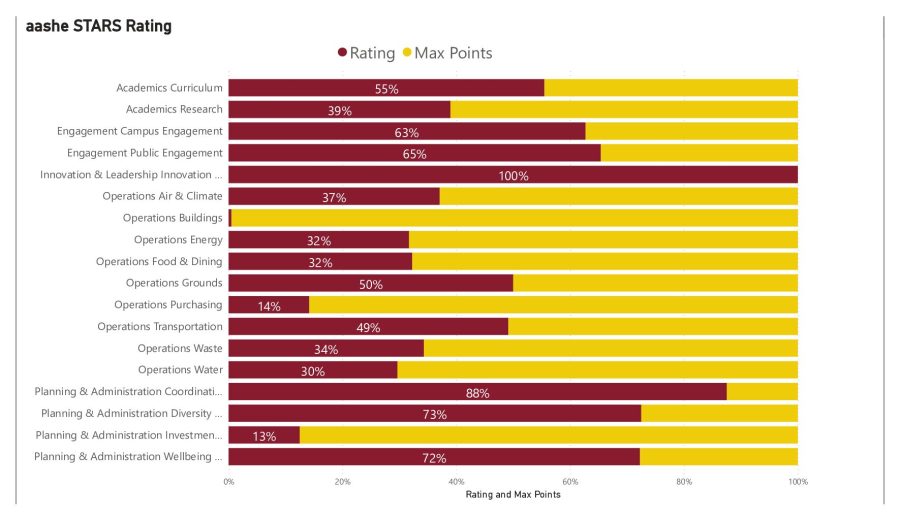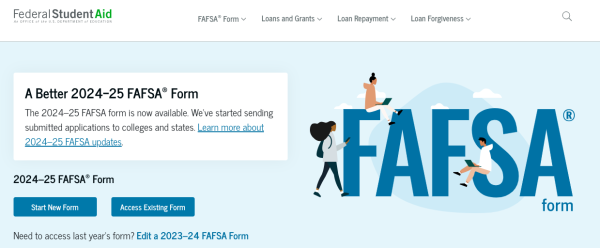Measuring sustainability: STARS and lawns
Calvin’s STARS rating from the Association for the Advancement of Sustainability in Higher Education.
Former President Michael Le Roy signed a Climate Action Commitment in 2017, and the university’s current strategic plan holds environmental sustainability as a key value. But sustainability is hard to measure and was especially difficult to track during the COVID-19 pandemic. Annual Sustainability Tracking, Assessment and Rating System (STARS) reports are one way that Calvin keeps track of progress.
STARS reports are a benchmarking tool for sustainability widely used by colleges and universities, and Calvin submitted their fifth report last month. Calvin has earned a silver rating from STARS for the past five years, a rating Sustainability Coordinator and Director of the Sustainability Fellows Cohort Tom Hartzell calls “middle of the road.”
STARS awards points based on academics, planning and administration, engagement and operations.
“The STARS report is really important,” Hartzell said. “Internally, it lets us keep track of what we’ve been doing and measure areas that we have improved in. It also allows us to see what makes sense as next steps.”
Five sustainability programs — Kill-A-Watt, the Calvin Energy Recovery Fund, the Sustainability Showcase, the Calvin Energy and Environmental Sustainability Committee and Plaster Creek Stewards — featured prominently in this year’s STARS report because of their active role in promoting engagement with sustainable practices for Calvin’s campus, community and faculty, according to Hartzell.
The Plaster Creek Stewards are particularly active in implementing practical sustainability efforts through habitat restoration, and they are “great for creating outreach and educational opportunities,” Hartzell said.
Lawn maintenance is an area in which Calvin has room for growth as the university moves forward with sustainability plans, according to Warners. “There is a lot of lawn area that people don’t use … that we are just mowing and blowing, and those could be converted into natural areas,” he said.
“Herbicides are one of our biggest concerns when it comes to Plaster Creek,” Dave Warners, biology professor and director of the Plaster Creek Stewards program, told Chimes. “They have too many nutrients and don’t stay in lawns,” he said, “There are lots of opportunities to do ground maintenance in more sustainable ways.”
Lawns produce a carbon footprint and lack biodiversity, while natural growth areas absorb carbon dioxide and support more biodiversity, Warners told Chimes.
Calvin would like to expand and improve upon students’ sustainability education inside the classroom as well, according to Hartzell. “Sustainability is inherently interdisciplinary,” he said. “The more departments directly teaching about sustainability, the better for our students’ learning.”
Debra Rienstra — an English professor at Calvin — designed and now teaches an environmental literature class, which fills a sustainability tag in Calvin’s core curriculum. “If we need to shift to a different kind of future, we can’t do that without imagining it,” Rienstra said.“Stories allow us to imagine both the good possibilities and the bad ones.”
“It is actually in Calvin’s strategic plan to reach [the] gold [STARS rating],” Hartzell said. According to Hartzell, achieving that goal will require ongoing change.
According to Rienstra, “Any kind of change, any kind of action, has to come from love. We can have charts and graphs. That is all important, and fear is helpful, but in the end, love is what motivates.”






